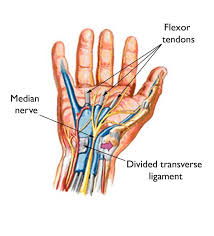The human hand is a marvel of engineering, allowing us to perform a wide variety of tasks with precision and dexterity. However, the intricate network of nerves that makes this possible can sometimes encounter problems, leading to pain, weakness, or even loss of function. In this article, we will explore the common nerve issues in the hand, their causes, symptoms, and potential treatments. Our goal is to provide you with clear, actionable information to help you understand and manage these issues effectively.
Nerve problems in the hand can be caused by a variety of factors, ranging from injuries to medical conditions. Understanding the root cause of nerve issues is crucial for determining the right treatment approach.
- Injuries and Trauma: Accidents, falls, or cuts can damage the nerves in the hand. A nerve cut in the hand, for instance, can lead to immediate symptoms like pain, tingling, or numbness.
- Repetitive Stress: Overuse of the hand in activities such as typing, writing, or using tools can cause nerve damage over time. This is often seen in conditions like carpal tunnel syndrome.
- Medical Conditions: Diseases such as diabetes can cause neuropathy, which affects the nerves in the hand. Rheumatoid arthritis and other inflammatory conditions can also lead to nerve pain in the arm and hand.
- Compression: Nerve blockage in the hand can occur due to compression. This is when a nerve is pinched or pressed, often leading to symptoms like pain and weakness.
 Symptoms of Nerve Damage in the Hand
Symptoms of Nerve Damage in the Hand
Recognizing the symptoms of nerve damage is the first step towards effective treatment. Here are some common symptoms to watch for:
Nerve Damage in Hand Symptoms
- Tingling or Numbness: Often described as a "pins and needles" sensation, this can be an early sign of nerve issues.
- Weakness in Hands: Difficulty gripping objects or performing tasks that require fine motor skills may indicate nerve problems.
- Pain: Nerve pain in fingers or the entire hand can range from mild to severe and may be constant or intermittent.
- Loss of Coordination: Difficulty with tasks that require precise movements can result from nerve damage.
 How to Treat Nerve Damage in the Hand
How to Treat Nerve Damage in the Hand
Treatment for nerve damage in the hand depends on the underlying cause and severity of the condition. Here are some common approaches:
Non-Surgical Treatments
- Rest and Immobilization: Allowing the hand to rest can help reduce inflammation and give the nerves time to heal. Using a splint or brace can also prevent further injury.
- Physical Therapy: Exercises designed to improve strength and flexibility in the hand can aid in recovery. A physical therapist can tailor a program to your specific needs.
- Medication: Over-the-counter pain relievers, such as ibuprofen, can help manage pain and inflammation. In some cases, doctors may prescribe stronger medications or topical treatments.
- Lifestyle Changes: Reducing repetitive motions and taking breaks during activities can prevent further nerve damage. Ergonomic adjustments to workspaces can also be beneficial.
Surgical Treatments
In cases where non-surgical methods are ineffective, surgery may be necessary to relieve pressure on the nerves or repair damaged tissue. This is often considered for severe cases of nerve injury in the hand.
Neuropathy Footwear
Though primarily associated with foot problems, neuropathy shoes can play a role in overall nerve health. Proper footwear can alleviate pressure on the feet, which indirectly affects the posture and use of hands, reducing strain.
Prevention of Nerve Problems in the Hand
Preventing nerve issues involves a combination of lifestyle adjustments and proactive measures:
- Maintain Good Posture: Proper posture reduces strain on the arms and hands, which can help prevent nerve issues.
- Ergonomic Tools: Use tools and devices that minimize stress on the hands and wrists.
- Regular Breaks: Take breaks during repetitive tasks to give your hands a rest.
- Strengthening Exercises: Regular hand exercises can improve flexibility and strength, reducing the risk of injury.
When to See a Doctor
If you experience persistent symptoms of nerve damage, such as continuous pain, numbness, or weakness, it's important to consult a healthcare professional. Early diagnosis and treatment can prevent further damage and improve outcomes.
Conclusion
Nerve issues in the hand can impact daily life significantly, but understanding the causes, symptoms, and treatments can empower you to take control of your health. Whether through lifestyle changes, medical interventions, or preventive measures, managing nerve problems effectively is within reach. Always consult with a healthcare provider for personalized advice and treatment options tailored to your specific condition.
By staying informed and proactive, you can help protect your hands and maintain their vital function in your everyday activities.








